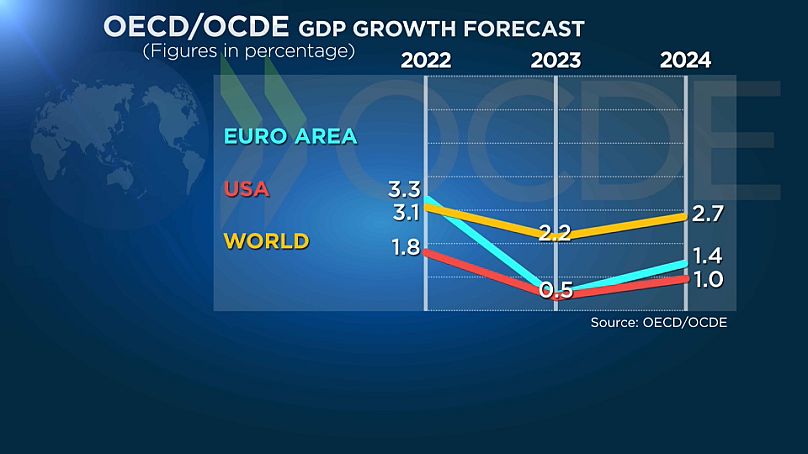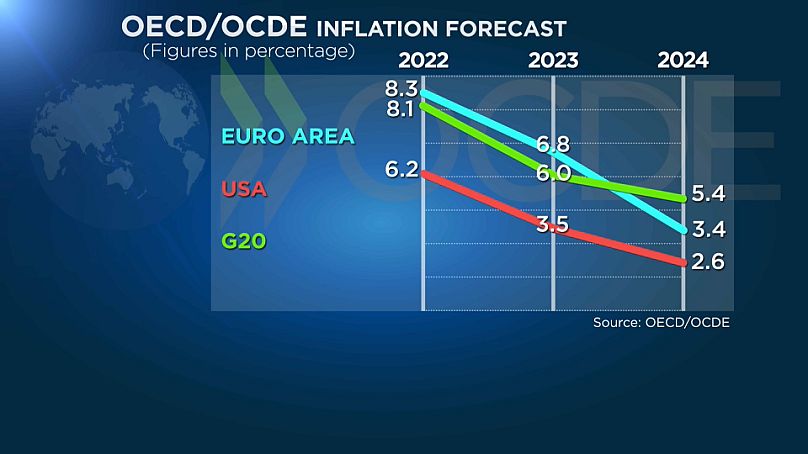"This is a very, very challenging outlook", said OECD Secretary-General Mathias Cormann.
High interest rates, soaring inflation and Russia’s war in Ukraine mean that slower growth is predicted for the global economy in the year ahead -- with only a slight recovery in 2024.
According to the Organisation for Economic Cooperation and Development (OECD), the world economy will grow just 3.1% this year, down sharply from 5.9% in 2021.
And next year is expected to be even worse: The international economy will expand be only 2.2%, says the Paris-based organisation.
The West will be particularly affected. GDP in the Euro area and growth in the US are expected to decline to 0.5%.
"The world is facing substantial headwinds and substantial risks over the horizon", explained OECD Secretary-General Mathias Cormann.
"In this challenging environment we need to confront the crisis with well-designed responses as well as with international cooperation in order to overcome this difficult situation and pave the way for a better future", he added.
Soaring high inflation is dragging on economies around the world. In the Eurozone, inflation next year is expected to drop to 6.8% from 8.3% in 2022.
The incremental drop in prices in the US may continue, with inflation falling to 3.5%. Further easing is anticipated in 2024.
"Inflationary pressures have really intensified and have become a lot more pervasive", said Alvaro Santos Pereira, Acting Chief Economist at the OECD.
"You can see that in many countries of the world you have more than 50%, 60%, 70% of all goods and services of their economies that right now are growing more than 6% per year." he said. "So, inflation has become more entrenched, more intensified, but also more broad-based".













